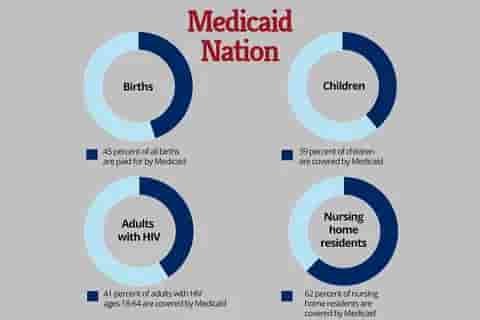Medicaid is a crucial healthcare program that provides coverage for low-income individuals and families. However, many people wonder, how long can you be on Medicaid? The answer depends on several factors, including eligibility, income, and state-specific rules. In this article, we will explore the duration of Medicaid coverage and what impacts your continued eligibility.
How Long Can You Be on Medicaid: Eligibility and Duration
The duration of Medicaid benefits is not fixed and varies based on individual circumstances. Generally, as long as you meet the eligibility requirements, you can remain on Medicaid. However, changes in income, age, disability status, or household composition can affect your continued coverage.
| Factor | Impact on Medicaid Duration |
| Income Level | Coverage continues if within limits |
| Age | Children may transition to CHIP; elderly may qualify for Medicare |
| Disability Status | Can lead to permanent Medicaid coverage |
| Pregnancy | Medicaid covers pregnancy plus postpartum period |
| State-Specific Rules | Each state has its own eligibility renewal process |
How Long Can You Be on Medicaid: Income and Renewals
One of the biggest factors in determining how long can you be on Medicaid is income. Most states require Medicaid recipients to renew their eligibility annually. If your income increases above the Medicaid threshold, you may no longer qualify. However, some states offer extended coverage or transition plans to avoid sudden loss of benefits.
How Long Can You Be on Medicaid: Special Cases
There are several cases where Medicaid recipients can have extended or even lifelong coverage. These include:
- Children – Medicaid covers children up to a certain age, after which they may qualify for CHIP (Children’s Health Insurance Program).
- Pregnant Women – Medicaid covers prenatal care and continues for a postpartum period, usually up to 60 days after childbirth.
- Disabled Individuals – Those with disabilities may qualify for permanent Medicaid coverage if they meet specific criteria.
- Seniors – Medicaid can work alongside Medicare to provide long-term care and nursing home benefits.
- Medically Needy Programs – Some states offer Medicaid to individuals who exceed income limits but have significant medical expenses.
Key Points to Remember
- Income level is a major factor in determining continued Medicaid coverage. How long can you be on Medicaid depends on eligibility, which is reviewed annually in most cases.
- Special cases like pregnancy, disability, and old age can extend Medicaid benefits.
- Each state has unique Medicaid rules, which impact eligibility and renewal procedures.
- If you lose Medicaid coverage, you may qualify for alternative health programs like CHIP or the Affordable Care Act marketplace.
Medicaid Coverage Duration: Temporary Assistance or Lifelong Benefit?
How long you can be on Medicaid varies from person to person. While some may receive temporary coverage, others, like disabled individuals or seniors, may qualify for lifelong benefits. Regular income evaluations, state regulations, and special circumstances all play a role in determining the duration of Medicaid eligibility.
FAQs
1. How often do I need to renew my Medicaid eligibility?
Most states require Medicaid renewal annually, but some states may have different timelines.
2. Can I stay on Medicaid if my income increases?
If your income exceeds the Medicaid threshold, you may lose eligibility, but some states offer transition programs.
3. Do children have different Medicaid eligibility rules?
Yes, children may qualify for Medicaid up to a certain age and can transition to CHIP afterward.
4. How does pregnancy affect Medicaid coverage?
Pregnant women qualify for Medicaid during pregnancy and for a postpartum period, typically up to 60 days after birth.5. Can I get Medicaid permanently?
Individuals with disabilities or those in long-term care may qualify for permanent Medicaid coverage.

